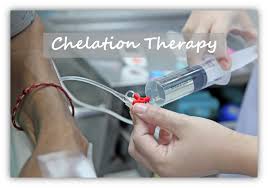
One Doctor’s Change of Heart About Chelation Part II of II
Dr. Lamas decided that modern clinical trials methodology could address the lingering question of chelation for coronary artery disease. Unbeknownst to him, chelation practitioners had been pleading for a chelation trial for years. They had the support of powerful congressmen and senators, but no established clinical scientists had submitted a proposal. Until Dr. Lamas came along.
In August of 2002, his hospital received a federal grant of $30 million to carry out the Trial to Assess Chelation Therapy (TACT). The first patient was enrolled in the study in September 2003, and it took 10 years to complete instead of the expected 5. The study that had been conceived 13 years before and was supposed to show chelation was nonsense, instead showed that it reduced cardiovascular events! It took 6 months of negotiating and rebutting critiques to get these results accepted for publication by the Journal of the American Medical Association.
- In patients with a prior heart attack, a course of edetate disodium-based chelation reduces recurrent cardiac events by 18%.
- In patients who are on chelation plus oral vitamins, events are reduced by 26%.
- In patients who have diabetes as well as a prior heart attack, the risk of a subsequent cardiac event was reduced by 41%, the risk of another heart attack by 50%, and the risk of death by 43%.
They also learned that after the study infusion, the amount of lead in the urine increases by 4000% and cadmium by 700%, showing how toxic we are (and they learned that low-level lead exposure may be responsible for hundreds of thousands of deaths annually).
When the NIH and Dr. Lamas’ team went to the FDA excited about this new way to treat atherosclerosis, the FDA said “Nice study, do it again.” So I 2016, the doctor’s hospital received another grant for $36 million to conduct TACT2, and the team committed to another decade of chelation research. It is estimated to be completed in December 2022. The complete details of the new study can be found here: https://clinicaltrials.gov/ct2/show/NCT02733185 .
Terry Pfau DO, HMD
